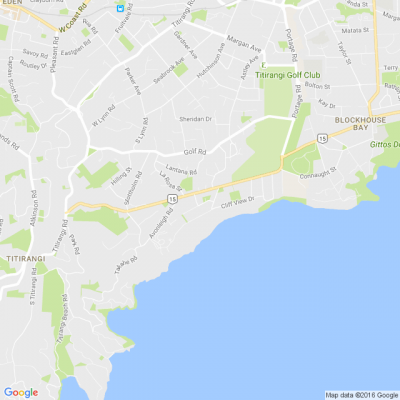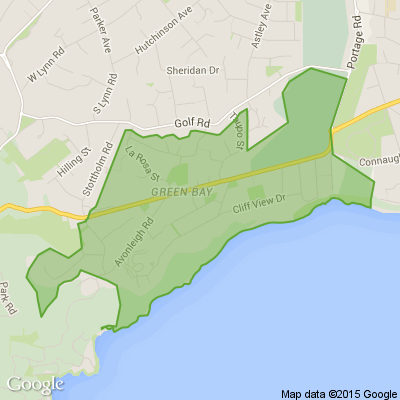New speed cameras could crack down on tailgaters, take photos of drivers using cellphones, not belted in
Speed cameras that take two pictures at different spots in order to work out a vehicle's average speed could be in use within months.
Transport Agency documents say law changes could allow them to be used against more offences including tailgating, and seeing inside a car to spot drivers using cellphones or not belted in.
The OIA papers show Waka Kotahi has been working on this and a new highway tolling system that can also be used for congestion charging, for a couple of years.
Its plans say the point-to-point or average-speed cameras "could be a game changer enabling us to manage corridor speeds rather than spot speed".
They would be three times better than fixed or mobile speed cameras at cutting the road toll, a business case said.
The smart cameras "can be used to provide evidence, for example, that a driver is using a mobile phone or not wearing a seatbelt.
"Camera-based enforcement can be invasive, as images are purposely taken of the driver and passenger compartment," the business case stated.
A board paper from April said law changes under the Regulatory Stewardship Transport Amendment Bill meant from early 2023 there could be use of point-to-point cameras, automation of offence processing and fine notices delivered to cellphones.
Already 26 of the new cameras are on order to add to the 142-strong network.
The agency is calling them "safety cameras" in a Cabinet-ordered attempt "to shift the public away from perceptions that safety cameras are an enforcement, revenue-gathering tool".
Medium and high-risk roads will be the target.
A camera business case estimates they could save between 1500 and 2400 lives and $1.5 billion across two decades.
The privacy implications are still being worked out with the Privacy Commissioner.
Waka Kotahi refuses to specify the total cost of the camera system and new tolling system, saying this was to protect "ministers, members of organisations, officers, and employees from improper pressure or harassment".
However, just the first phase - choosing the mix of cameras, where to put them and the design of the system - costs $21.6m, which is $10m more than expected, though the documents said that had not impacted the whole budget.
Spanish traffic company SICE (Sociedad Ibérica de Construcciones Eléctricas) won the contract for the cameras and tolling.
The work is being done quickly alongside a review of road offence penalties with the aim of saving 114 lives a year by 2030.
As it stands, relatively few cameras per capita and lack of advanced cameras, along with very low penalties for speeding "greatly undermine the effectiveness of the enforcement approach", the papers say.
In New Zealand the speeding fine for being 1-10km/h over the limit in an urban area is $30, compared to $370 in Sweden.
Fines are set to rise and demerit points are very likely to be stiffer, and applied for the first time to camera offences.
Authorities see all this as crucial to the Road to Zero strategy, with cameras expected to provide 5 percent of the 40 percent reduction in road deaths and serious injuries that is the strategy's primary goal.
========================================
At present there are 142 safety cameras across its road network: 45 red-light, 54 fixed speed, and 43 mobile cameras, an increase of 30 since 2019. Waka Kotahi is taking them over from police, adding to its 2000 traffic management cameras. It would not say how many cameras it planned to have.
========================================
"ITS and infrastructure will be future-proofed to enable Waka Kotahi to trial and adopt ... smart cameras" with "built-in intelligent image processing and pattern recognition algorithms [that] allow these cameras to detect motion, measure objects, read vehicle number plates, and recognise human behaviours", the camera business case says.
Police were already testing prototypes of trailers to carry point-to-point speed cameras that might be used at roadworks.
The aim with the network of three types of camera - point-to-point, red light, and standard used in both fixed and mobile operations - is to create an "anywhere, any time" deterrent.
Research shows the public thinks speeding is much safer than it is: 44 percent of all road deaths in the last decade were down to speed.
Privacy implications
=================
On privacy, the business case says "the data and digital images captured by cameras, their storage, and their use all have privacy implications".
"New issues will arise with new technologies that can be used for other than current safety-related purposes, such as average speed and mobile phone use detection."
The agency expects a small rise in public support for cameras of up to 2.5 percent as people see the safety benefits.
On the tolling front, the documents show the current system used on just three highways is on its last legs.
"As it is now, the current tolling system is a very inefficient way of collecting money," the business case said.
One option was to run it to standstill, or outsource it entirely.
The is an indication there will be more tolling: "Over time, it should be expected that the cost of an outsourced service will increase as more roads are tolled."
Waka Kotahi has chosen Spanish company SICE to provide and run all the back office systems.
The business case does not mention congestion charging but the board paper says the upgrade is aimed at "upcoming toll roads as well as to support new capability that may be required, e.g. congestion charging."
====================================================
Poll: As a customer, what do you think about automation?
The Press investigates the growing reliance on your unpaid labour.
Automation (or the “unpaid shift”) is often described as efficient ... but it tends to benefit employers more than consumers.
We want to know: What do you think about automation?
Are you for, or against?

-
9.5% For. Self-service is less frustrating and convenient.
-
43.4% I want to be able to choose.
-
47.1% Against. I want to deal with people.
Even Australians get it - so why not Kiwis???
“Ten years ago, if a heatwave as intense as last week’s record-breaker had hit the east coast, Australia’s power supply may well have buckled. But this time, the system largely operated as we needed, despite some outages.
On Australia’s main grid last quarter, renewables and energy storage contributed more than 50% of supplied electricity for the first time, while wholesale power prices were more than 40% lower than a year earlier.
[…] shifting demand from gas and coal for power and petrol for cars is likely to deliver significantly lower energy bills for households.
Last quarter, wind generation was up almost 30%, grid solar 15% and grid-scale batteries almost tripled their output. Gas generation fell 27% to its lowest level for a quarter century, while coal fell 4.6% to its lowest quarterly level ever.
Gas has long been the most expensive way to produce power. Gas peaking plants tend to fire up only when supply struggles to meet demand and power prices soar. Less demand for gas has flowed through to lower wholesale prices.”
Full article: www.theguardian.com...
If even Australians see the benefit of solar - then why is NZ actively boycotting solar uptake? The increased line rental for electricity was done to make solar less competitive and prevent cost per kWh to rise even more than it did - and electricity costs are expected to rise even more. Especially as National favours gas - which is the most expensive form of generating electricity. Which in turn will accelerate Climate Change, as if New Zealand didn’t have enough problems with droughts, floods, slips, etc. already.
Rock'in with Elvis by Mike Cole
The Memories of Elvis Fan Club invite you to our 1st Elvis Social for 2026. We are excited to have our own Mike Cole back at the Te Atatu RSA on Saturday 28th February at 7.30pm. Cost only $20pp. Tickets are on sale at the RSA or reserve through Jackie 0274901126. So lets see you with your dancing shoes on and that great smile as we start off 2026 with a bang.









 Loading…
Loading…